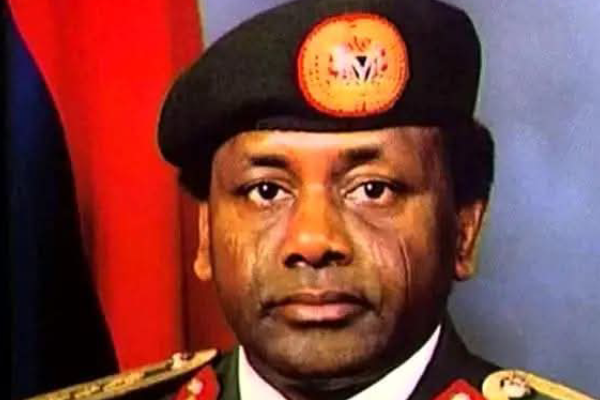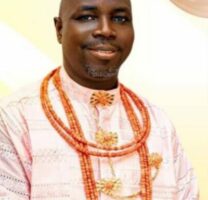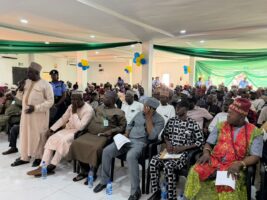It is exactly 27 years ago when that News broke about the death of the then Head of State, General Sani Abacha.
Surprisingly, as is customary in Africa, the death was met with great rejoicing, particularly in Nigeria’s southern region.
This report follows the former head of state’s life and times 27 years later.
The cause was not farfetched; his reign was distinguished by dispute surrounding Moshood Abiola’s victory in the June 12, 1993 presidential election, which many believed should have been sworn in despite President Ibrahim Babangida annulling the results.
In a twist of event, Moshood Abiola died unexpectedly, shortly after the death of General Abacha on the day that he was due to be released after being in detention for few years.
He was reportedly in a meeting with some American diplomats including Thomas Pickering and Susan Rice at a government guesthouse in Abuja.
Abacha’s seizure of power was the last successful coup d’état in Nigerian history even though it was bloodless removing the interim head of State, Ernest Shonekan.
He wielded so much power. His regime was marked with disregard for human rights and political assassinations including death of Kudirat Abiola, wife of Moshood Abiola, Alfred Rewane and few more.
The execution of environmental activist Ken Saro-Wiwa and other Ogoni leaders was also notable during his tenure.
The man, Sani Abacha was not strange to the corridors of power. Before he became the head of State, He was Chief of Army Staff between 1985 to 1990 during Ibrahim Babangida’s regime
In 1990, he became the chief of Defence staff till 1993 still under IBB’s regime and later on short-lived three months tenure of Ernest Shonekan.
He was succeeded as Nigeria’s head of state by General Abdulsalami Abubak
His regime was also characterised with high level financial embezzlement from the national treasury, coined the ”Abacha loot” hidden in Banks, including those in Switzerland, the United Kingdom, the United States and Liechtenstein.
General Abacha’s death on 8 June 1998 brought about the Nigerian Fourth Republic a year later and he was succeeded as Nigeria’s head of state by General Abdulsalami Abubakar.
General Abacha’s not all about woes. He oversaw the re-organisation of Nigeria into six geopolitical zones.
His administration established the now defunct Petroleum Trust Fund. The PTF was a huge success in terms of service delivery to the country.
Abacha’s administration also oversaw an increase in the country’s foreign exchange reserves from $494 million in 1993 to $9.6 billion by the middle of 1997, and reduced the external debt of Nigeria from $36 billion in 1993 to $27 billion by 1997.
Abacha is noted for having been the first Nigerian Army officer to attain the rank of general without skipping a single rank.
Abacha was married to Maryam Abacha and had seven sons and three daughters. In 2018, he was recorded to have thirty-three grandchildren.
The name came up recently when his erstwhile Boss, Ibrahim Babangida in his autobiography on his 80th birthday attributed the annulment of June 12 election to Sani Abacha who died 27 years ago. A statement his family and associates have denied.





